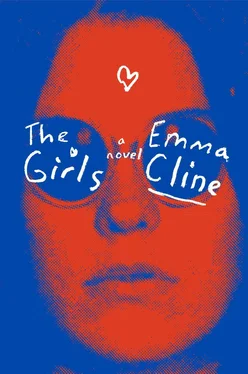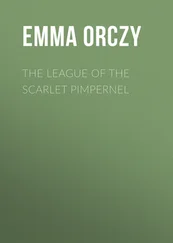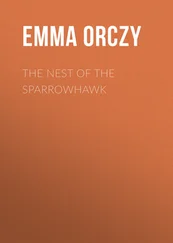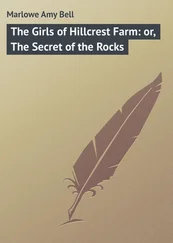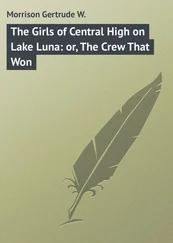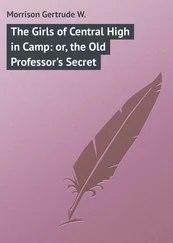Come September, I’d be sent off to the same boarding school my mother had gone to. They’d built a well-tended campus around an old convent in Monterey, the lawns smooth and sloped. Shreds of fog in the mornings, brief hits of the nearness of salt water. It was an all-girls school, and I’d have to wear a uniform — low-heeled shoes and no makeup, middy blouses threaded with navy ties. It was a holding place, really, enclosed by a stone wall and populated with bland, moon-faced daughters. Camp Fire Girls and Future Teachers shipped off to learn 160 words a minute, shorthand. To make dreamy, overheated promises to be one another’s bridesmaids at Royal Hawaiian weddings.
My impending departure forced a newly critical distance on my friendship with Connie. I’d started to notice certain things, almost against my will. How Connie said, “The best way to get over someone is to get under someone else,” as if we were shopgirls in London instead of inexperienced adolescents in the farm belt of Sonoma County. We licked batteries to feel a metallic jolt on the tongue, rumored to be one-eighteenth of an orgasm. It pained me to imagine how our twosome appeared to others, marked as the kind of girls who belonged to each other. Those sexless fixtures of high schools.
Every day after school, we’d click seamlessly into the familiar track of the afternoons. Waste the hours at some industrious task: following Vidal Sassoon’s suggestions for raw egg smoothies to strengthen hair or picking at blackheads with the tip of a sterilized sewing needle. The constant project of our girl selves seeming to require odd and precise attentions.
As an adult, I wonder at the pure volume of time I wasted. The feast and famine we were taught to expect from the world, the countdowns in magazines that urged us to prepare thirty days in advance for the first day of school.
Day 28: Apply a face mask of avocado and honey.
Day 14: Test your makeup look in different lights (natural, office, dusk).
Back then, I was so attuned to attention. I dressed to provoke love, tugging my neckline lower, settling a wistful stare on my face whenever I went out in public that implied many deep and promising thoughts, should anyone happen to glance over. As a child, I had once been part of a charity dog show and paraded around a pretty collie on a leash, a silk bandanna around its neck. How thrilled I’d been at the sanctioned performance: the way I went up to strangers and let them admire the dog, my smile as indulgent and constant as a salesgirl’s, and how vacant I’d felt when it was over, when no one needed to look at me anymore.
I waited to be told what was good about me. I wondered later if this was why there were so many more women than men at the ranch. All that time I had spent readying myself, the articles that taught me life was really just a waiting room until someone noticed you — the boys had spent that time becoming themselves.
—
That day in the park was the first time I saw Suzanne and the others. I’d ridden my bike there, aimed at the smoke streaming from the grill. No one spoke to me except the man pressing burgers into the grates with a bored, wet sizzle. The shadows of the oaks moved over my bare arms, my bike tipped in the grass. When an older boy in a cowboy hat ran into me, I purposefully slowed so he would bump into me again. The kind of flirting Connie might do, practiced as an army maneuver.
“What’s wrong with you?” he muttered. I opened my mouth to apologize, but the boy was already walking off. Like he’d known he didn’t need to hear whatever I was going to say.
The summer gaped before me — the scatter of days, the march of hours, my mother swanning around the house like a stranger. I had spoken to my father a few times on the phone. It had seemed painful for him, too. He’d asked me oddly formal questions, like a distant uncle who knew me only as a series of secondhand facts: Evie is fourteen, Evie is short. The silences between us would’ve been better if they were colored with sadness or regret, but it was worse — I could hear how happy he was to be gone.
I sat on a bench alone, napkins spread across my knees, and ate my hamburger.
It was the first meat I’d had in a long time. My mother, Jean, had stopped eating meat in the four months since the divorce. She’d stopped doing a lot of things. Gone was the mother who’d made sure I bought new underwear every season, the mother who’d rolled my white bobby socks as sweetly as eggs. Who’d sewn my dolls pajamas that matched mine, down to the exact pearly buttons. She was ready to attend to her own life with the eagerness of a schoolgirl at a difficult math problem. Any spare moment, she stretched. Going up on her toes to work her calves. She lit incense that came wrapped in aluminum foil and made my eyes water. She started drinking a new tea, made from some aromatic bark, and shuffled around the house sipping it, touching her throat absently as if recovering from a long illness.
The ailment was vague, but the cure was specific. Her new friends suggested massage. They suggested the briny waters of sensory deprivation tanks. They suggested E-meters, Gestalt, eating only high-mineral foods that had been planted during a full moon. I couldn’t believe my mother took their advice, but she listened to everyone. Eager for an aim, a plan, believing the answer could come from any direction at any time, if only she tried hard enough.
She searched until there was only searching left. The astrologer in Alameda who made her cry, talking about the inauspicious shadow cast by her rising sign. The therapies that involved throwing herself around a padded room filled with strangers and whirling until she hit something. She came home with foggy tinges under the skin, bruises that deepened to a vivid meat. I saw her touch the bruises with something like fondness. When she looked up and saw me watching, she blushed. Her hair was newly bleached, stinking of chemicals and artificial roses.
“Do you like it?” she said, grazing the sheared ends with her fingers.
I nodded, though the color made her skin look washed by jaundice.
She kept changing, day by day. Little things. She bought handcrafted earrings from women in her encounter group, came back swinging primitive bits of wood from her ears, enameled bracelets the color of after-dinner mints jittery on her wrists. She started lining her eyes with an eyeliner pencil she held over a lighter flame. Turning the point until it softened and she could draw slashes at each eye, making her look sleepy and Egyptian.
She paused in my doorway on her way out for the night, dressed in a tomato-red blouse that exposed her shoulders. She kept pulling the sleeves down. Her shoulders were dusted with glitter.
“You want me to do your eyes too, sweetheart?”
But I had nowhere to be. Who would care if my eyes looked bigger or bluer?
“I might get back late. So sleep well.” My mother leaned over to kiss the top of my head. “We’re good, aren’t we? The two of us?”
She patted me, smiling so her face seemed to crack and reveal the full rush of her need. Part of me did feel all right, or I was confusing familiarity with happiness. Because that was there even when love wasn’t — the net of family, the purity of habit and home. It was such an unfathomable amount of time that you spent at home, and maybe that’s the best you could get — that sense of endless enclosure, like picking for the lip of tape but never finding it. There were no seams, no interruptions — just the landmarks of your life that had become so absorbed in you that you couldn’t even acknowledge them. The chipped willow-print dinner plate I favored for forgotten reasons. The wallpaper in the hallway so known to me as to be entirely incommunicable to another person — every fading copse of pastel palm trees, the particular personalities I ascribed to each blooming hibiscus.
Читать дальше
